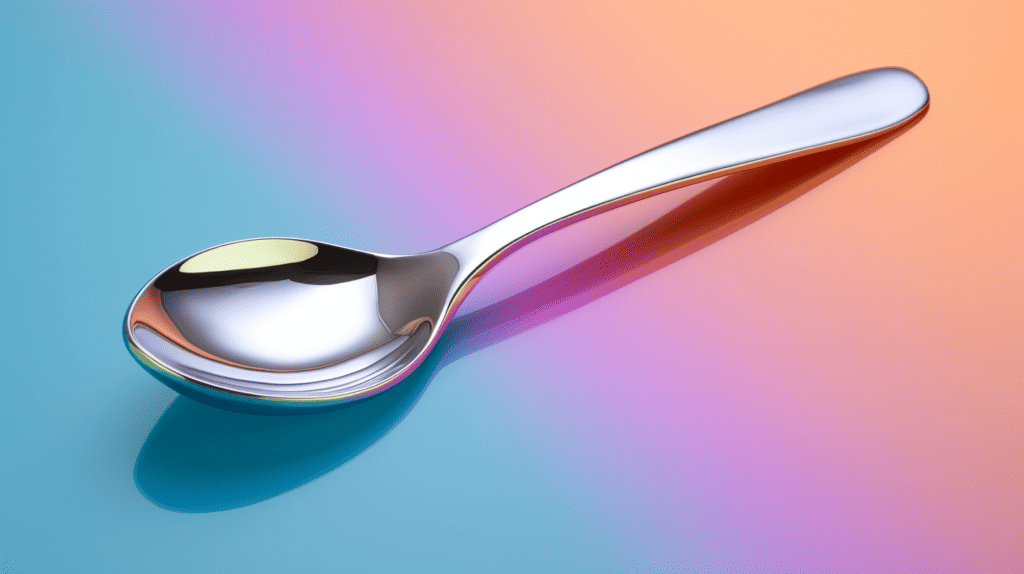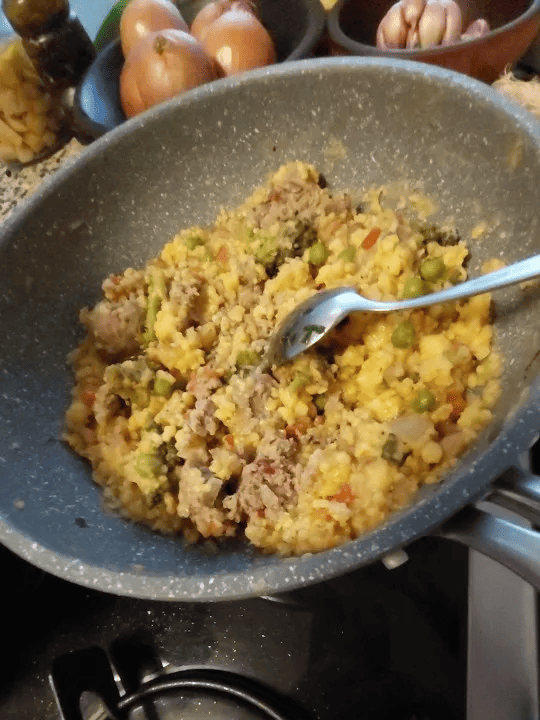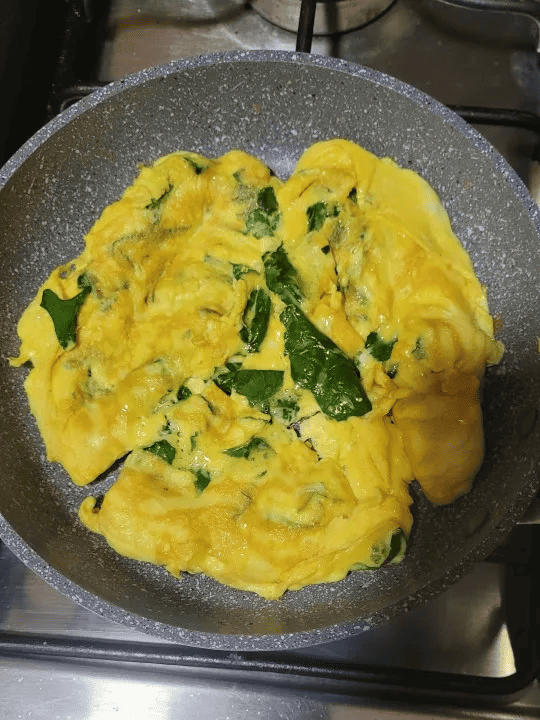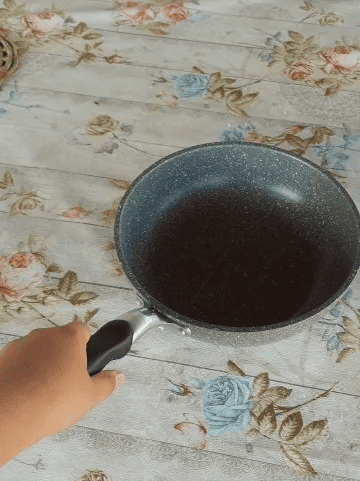
Leaving a spoon in food in the fridge is a common practice for many people. But have you ever wondered if it’s safe to do so? The answer is not straightforward, and it depends on several factors.
Firstly, it’s important to consider the type of utensil you’re using. Metal utensils are highly reactive and may react with the food, leading to contamination. On the other hand, plastic utensils are less reactive and can be left in food in the fridge. However, leaving utensils sticking out of dishes can prevent them from being properly sealed and stored.
Understanding Food Safety
Risks of Leaving a Spoon in Food
Leaving a spoon in food in the fridge can pose a risk to your health. Metal utensils, in particular, are highly reactive and can react with the food, leading to contamination. Additionally, leaving utensils sticking out of dishes can prevent them from being properly sealed and stored.
Plastic utensils are generally considered safe to leave in food in the fridge. However, if the temperature is extreme, such as if the food is very hot or very cold, it can cause the plastic to melt or shatter.
To ensure that your food remains safe to eat, it is best to remove any utensils from the food before storing it in the fridge. You should also make sure that your food is stored in airtight containers to prevent contamination.
Material Considerations
When it comes to leaving a spoon in food in the fridge, the type of spoon you use can make a difference. Here are some material considerations to keep in mind:
Stainless Steel Spoons
Stainless steel spoons are the most common type of spoon used in the kitchen, and they are generally safe to leave in food in the fridge. Stainless steel is a non-reactive metal, which means it won’t interact with the food or cause any contamination. However, leaving a stainless steel spoon in food for an extended period of time may cause a metallic taste in the food.
Plastic Spoons
Plastic spoons are not recommended for leaving in food in the fridge. Plastic is a porous material, which means it can absorb flavors and odors from the food. Additionally, plastic can leach chemicals into the food if it is exposed to acidic or fatty foods for an extended period of time. If you must use a plastic spoon, make sure it is clean and dry before leaving it in the food, and cover the food with a lid or plastic wrap to prevent contamination.
Wooden Spoons
Wooden spoons are also not recommended for leaving in food in the fridge. Wood is a porous material, which means it can absorb moisture and bacteria from the food. Additionally, wood can crack and splinter over time, which can make it difficult to clean and can harbor bacteria. If you must use a wooden spoon, make sure it is clean and dry before leaving it in the food, and cover the food with a lid or plastic wrap to prevent contamination.
Potential Consequences
Impact on Food Taste
Leaving a spoon in your food while storing it in the fridge can cause the taste of the food to change. This is because the spoon can introduce bacteria into the food, which can cause it to spoil faster. The longer the spoon is left in the food, the greater the chances of contamination.
Moreover, if the spoon is not clean, it can leave behind a metallic taste in the food. This can be especially unpleasant if the food is sweet or acidic. Therefore, it is important to ensure that the spoon is thoroughly washed and dried before placing it in the food.
Impact on Spoon Condition
Leaving a metal spoon in food for an extended period can cause the spoon to corrode. This can happen due to the presence of acids in the food, which can react with the metal. Over time, the spoon can become discolored and even develop holes.
On the other hand, leaving a plastic spoon in food can cause it to melt if the temperature of the food is too high. This can also release harmful chemicals into the food. Therefore, it is best to use spoons made of materials that are safe to use with food.
Best Practices for Food Storage
Removing Utensils
When storing food in the fridge, it’s important to remove any utensils, such as spoons, forks, or knives, before placing the food in the fridge. Leaving utensils in the food can cause contamination and may lead to the growth of bacteria. Additionally, the utensils can cause damage to the food packaging, which can lead to spoilage.
Proper Refrigeration Techniques
Proper refrigeration techniques are essential for safe food storage. Follow these tips to keep your food fresh and safe:
- Keep the temperature of your fridge at or below 40°F (4°C).
- Store raw meat, poultry, and seafood in a separate container or on a separate shelf to prevent cross-contamination.
- Use airtight containers or wrap to prevent moisture loss and freezer burn.
- Label and date all containers to keep track of when the food was stored.
- Store food in the fridge within two hours of cooking or purchasing.
By following these best practices for food storage, you can ensure that your food stays fresh and safe to eat. Remember to always remove utensils before storing food in the fridge and to use proper refrigeration techniques to prevent contamination and spoilage.
Conclusion
In conclusion, leaving a spoon in your food in the fridge is generally safe, as long as the spoon is clean and the food is covered or stored in a container to prevent contamination. However, there are a few things to keep in mind.
Firstly, if you are using a metal spoon, be aware that it may conduct heat away from the food at a faster rate than no spoon. This may be undesirable if you are trying to keep your food cold. Additionally, if your food contains acidic ingredients like tomato paste, vinegar, lemon, or lime, it is best to avoid leaving utensils in the food, as acids can cause acid leeching, leaving a metallic taste to your meal.
If you are using plastic utensils, it is generally not recommended to leave them in the food in the fridge. Plastic utensils are not as durable as metal ones, and may break or warp if left in the fridge for too long. Additionally, leaving utensils sticking out of dishes can prevent them from being properly sealed and stored.
Frequently Asked Questions
Why is it bad to leave a spoon in food in the fridge?
Leaving a spoon in food in the fridge can lead to contamination. If the spoon is not clean, bacteria can grow on it and transfer to the food. Additionally, leaving utensils sticking out of dishes can prevent them from being properly sealed and stored. This can cause the food to dry out or absorb other flavors in the fridge.
What happens if you leave a metal spoon in food in the fridge?
Metal utensils are highly reactive and may react with the food, leading to contamination. If the food is acidic, such as tomato paste, vinegar, lemon and lime, and sour preserves, it can cause acid corrosion on the spoon. This can cause the spoon to leave a metallic taste in the food and may also cause the spoon to rust.
Can you leave a fork in the refrigerator?
It is generally not recommended to leave utensils in food in the fridge. However, if you must leave utensils in the fridge, it is better to use a fork instead of a spoon. Forks are less reactive than spoons and are less likely to cause contamination. But, it is still important to ensure that the fork is clean and that the food is covered or stored in a container to prevent contamination.



